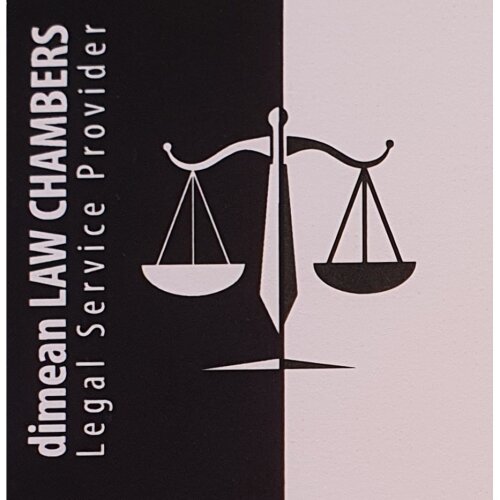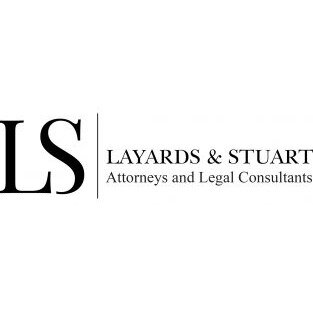Best Retirement Lawyers in Sri Lanka
Share your needs with us, get contacted by law firms.
Free. Takes 2 min.
Or refine your search by selecting a city:
List of the best lawyers in Sri Lanka
About Retirement Law in Sri Lanka
In Sri Lanka, retirement law primarily revolves around the rights and benefits entitled to employees reaching the retirement age as defined by statutory provisions. The formal retirement age is usually set between 55 and 60 years, varying with public and private sector norms. Legally, retirement often involves considerations such as pensions, provident funds, gratuities, and other post-retirement benefits safeguarded by employment statutes. Understanding these laws helps ensure that retirees receive their entitled benefits and can plan their retirement effectively.
Why You May Need a Lawyer
Engaging a legal professional can be crucial in various scenarios related to retirement, such as:
- Disputes over retirement age or forced retirement before the stipulated age.
- Negotiating or challenging the calculation and disbursement of retirement benefits like pensions or provident funds.
- Clarifying tax implications and exemptions on retirement benefits.
- Assisting expatriates and foreign nationals in understanding local retirement laws.
- Drafting or revising retirement plans and estate planning to ensure legal compliance.
Local Laws Overview
The legal framework governing retirement in Sri Lanka involves several key aspects, including:
- The Employees’ Provident Fund Act (EPF): Mandates contributions from employees and employers, which form a significant part of retirement fund for many Sri Lankans.
- The Employees’ Trust Fund (ETF): Another fund that provides supplementary benefits upon retirement.
- The Payment of Gratuity Act: Governs the gratuity payments to employees who have served more than five years in an organisation.
- Pension schemes for public sector employees: Governed by separate regulations and typically offer more comprehensive benefits.
Frequently Asked Questions
What is the official retirement age in Sri Lanka?
The retirement age in Sri Lanka typically ranges between 55 and 60 years, depending on the sector of employment.
Are expatriates eligible for retirement benefits in Sri Lanka?
Expatriates may be entitled to certain retirement benefits, especially if they contribute to local schemes such as the EPF and ETF, depending on their employment contracts.
How is the gratuity payment calculated?
Gratuity is calculated based on the last drawn salary and the number of years of service, typically amounting to half a month’s salary for each year of service.
Can I claim my EPF contributions early?
EPF contributions can generally be claimed upon reaching retirement age, but certain conditions allow earlier withdrawal, like migration or permanent disability.
What are the tax implications on retirement benefits?
Some retirement benefits may be subject to taxes in Sri Lanka, but there are exemptions available for specific types of payouts, which a legal advisor can clarify.
Is it possible to continue working after retirement age?
Yes, retirees in Sri Lanka can often continue working post-retirement through renewed or part-time contracts, subject to the employer’s policies.
Are private sector retirement benefits secured?
By law, the EPF and ETF funds are held by the government and are secured, but it’s essential to verify the credibility of any private pension plans.
What happens if my employer refuses to honor retirement benefits?
Legal action can be taken against employers who fail to honor retirement benefits, and a lawyer’s assistance would be crucial in such cases.
How do public sector pension schemes work?
They are governed by specific regulations offering defined benefits, typically calculated on the number of years served and the last salary drawn.
Are there alternative retirement savings options in Sri Lanka?
Besides statutory schemes, individuals can explore private pension plans, fixed deposits, and other savings plans as alternative retirement savings options.
Additional Resources
For further information and assistance, consider reaching out to:
- The Department of Labour, Sri Lanka - for inquiries on provident and trust fund contributions.
- The Ministry of Public Administration - for guidelines on public sector retirements.
- The Institute of Chartered Accountants of Sri Lanka - for tax-related queries.
- Local legal aid organizations that can offer free or subsidized advice.
Next Steps
If you require legal assistance with retirement matters in Sri Lanka, consider the following steps:
- Consult a lawyer specializing in employment or retirement law.
- Gather all relevant employment contracts, contribution records, and correspondence about your retirement benefits.
- Seek advice from legal aid services if costs are a concern.
- Contact relevant government departments to clarify legal obligations and benefits.
Understanding your rights and available recourses can ensure you manage your retirement with confidence and security.
Lawzana helps you find the best lawyers and law firms in Sri Lanka through a curated and pre-screened list of qualified legal professionals. Our platform offers rankings and detailed profiles of attorneys and law firms, allowing you to compare based on practice areas, including Retirement, experience, and client feedback.
Each profile includes a description of the firm's areas of practice, client reviews, team members and partners, year of establishment, spoken languages, office locations, contact information, social media presence, and any published articles or resources. Most firms on our platform speak English and are experienced in both local and international legal matters.
Get a quote from top-rated law firms in Sri Lanka — quickly, securely, and without unnecessary hassle.
Disclaimer:
The information provided on this page is for general informational purposes only and does not constitute legal advice. While we strive to ensure the accuracy and relevance of the content, legal information may change over time, and interpretations of the law can vary. You should always consult with a qualified legal professional for advice specific to your situation.
We disclaim all liability for actions taken or not taken based on the content of this page. If you believe any information is incorrect or outdated, please contact us, and we will review and update it where appropriate.
Browse retirement law firms by city in Sri Lanka
Refine your search by selecting a city.

















